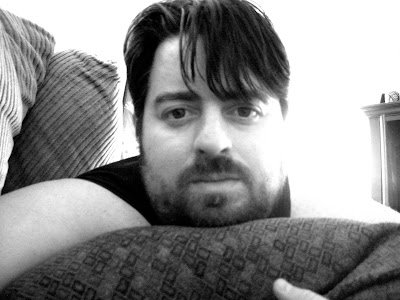You know them, you work with them every day. The baby boomers. They've ruled the country as the dominant generation for almost 20 years now and their time as the reigning cultural force is almost at an end. No more exposes on the JFK assassination. No more deification of all things with the last name Kennedy. And soon, no more mention of Nixon and watergate in everyday conversation. The doors, the monkeys and most of the other nouns from that very forgettable era in pop music will pass into memory and someday be mentioned with deference the way we now mention Glenn Miller and Louis Armstrong. And just as an aside, Paul and Yoko's refusal to allow iTunes to sell their music is the HEIGHT of the techno-phobia so typical of that generation that still thinks "computers = people loosing their jobs and their humanity."
So now what? As we settle in with our first Gen X president and his family with the first generation for which abortion has been legal all their lives, what will it mean to politics as the baby boomers are ushered stage left of the American Cultural Zeitgeist?
As I look for a job in the worst economy in 50 years (caused by the missteps of the baby boomer generation, I might add... both republican and democrat) I find myself becoming more and more anti-baby boomer and find that the companies I find that are surviving in this harsh economic climate are helmed by gen-x CEO's. Coincidence? Maybe.
The place I feel the boomer generation will sorely be missed... Silicon Valley. I weep for a post-Jobs Apple. Microsoft can feel its market share eroding like the British empire in the early 20th century with Google playing Ghandi in this particular tableau. There's nothing to suggest any other end as Bill Gates exits. The Hardware manufacturers are all in dealing with recessive sales and the one that seems to be flourishing is Dell (run by Gen-X-er Michael Dell) and is not even in Silicon Valley.
As America confronts the notion that it's greatest days are left behind and our foreign policy been coasting on the success of WWII for almost 50 years now, the shift from one generation to the next, while not cataclysmic in it's implementation, I hope, will be far-reaching in its change.
I've been working with a local politician, also a baby boomer. I do their website and I've been trying to get them to start twittering their day so as to develop a following of constituents who are interested in the job they're doing. It's like pulling teeth. They don't get it and see it was yet another "chore" they have to add to their long list of daily chores. And then you see many other (Gen x) politicians twittering during The President's most recent speech (as was I) and you understand that the gap in understanding is so poignantly generational and there's no amount of technology or education that will ever get them there.
When I contemplate the future and current ascendancy of Gen X and the future ascendancy of Gen Y I think of Ashton Kutcher's most recent appearance on the Bill Maher show talking about California's Gay Marriage Ban initiative Prop 8. His primary reaction was one of incredulity that the issue was even up for a vote.
"Why is this even on the ballot?" he said aloud during the panel debate. Why, indeed, Ashton? Gen Y was brought up with a decidedly live-and-let-live mentality that will serve this country's social agenda well over the next 50 years. They dont' remember a time when gays weren't out and when MTV didn't have them as featured characters on The Real World (which is neither real nor a picture of anyone's world, but I digress).
Pondering my generation's ascendancy to leadership and the values of the next generation up to bat, it gives me great hope for the future that the silly notions of the boomers and the late 60's dogma they embody will come to a much needed conclusion. And when that happens, to quote a ( Gen-X ) song , "The Future's so bright, I gotta wear shades."
